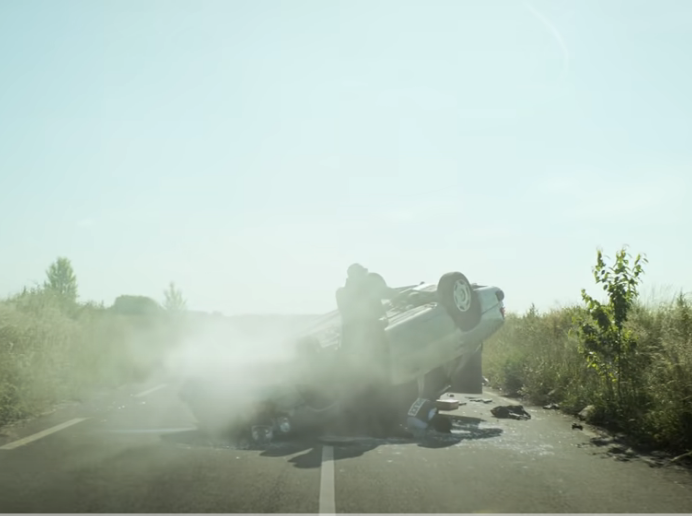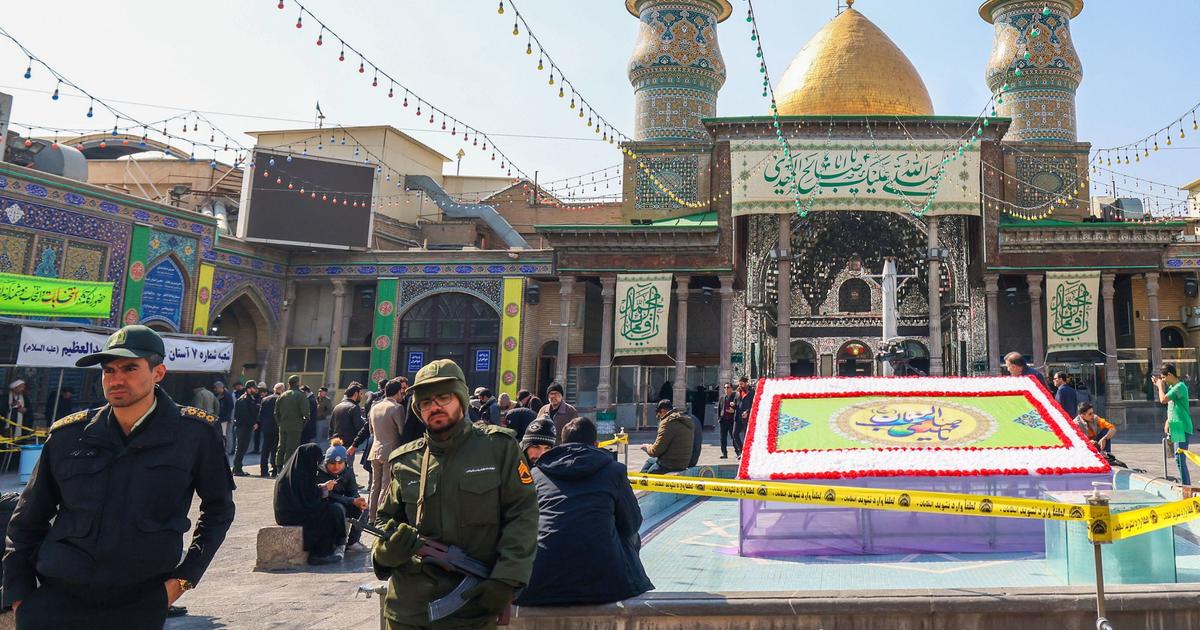Laurent Lemasson is a doctor in public law and political science, and former director of publications at the Institute for Justice.
SDM (read “Saddam”), real name Beni Mosabu, is a 26-year-old French rapper of Congolese origin.
After the success of his first album "Ocho", released in 2021, SDM seems determined to climb the ladder of notoriety four by four: the rapper posted photos from his next clip on his Instagram account and, on the one of them is seen standing next to the corpse of a police officer protruding from the door of an overturned car.
With the caption: “
Trigger squeezed.
Accurate shooter.
Retaliation I anticipate.
»
Immediately, police unions were indignant at this "apology for crime" and two MEPs from the Reconquest party called for the ambitious rapper to be prosecuted.
Who should rub their hands and count their profits in anticipation: what better way to establish their “street credibility” and sell their albums than a good little controversy with the police and the “extreme right”?
In this case, as in other similar ones that have preceded, there is no reason to doubt the sincerity of the indignation of the police, and we can only share their concern in the face of the increasingly uninhibited violence of which the police are victims in the daily exercise of their function.
But we must dare to say that this kind of reaction is a legal, political and moral impasse.
The simple fact of staging oneself committing a crime cannot be considered as a direct provocation to commit this crime, unless it tends to eliminate all freedom of expression.
Laurent Lemasson
Most likely, by far, is that SDM will not be prosecuted for his despicable and self-serving provocation.
If he were prosecuted the most likely, by far, is that he would not be convicted.
And if, in some extraordinary way, he were condemned, there would be no cause for rejoicing.
Legally, the position of the problem is well known: on the one hand freedom of expression, on the other the protection of public order.
As article 11 of the DDHC states: “
The free communication of thoughts and opinions is one of the most precious rights of man;
any citizen can thus speak, write, print freely, except to answer for the abuse of this freedom in the cases determined by the law
”
.
In the case that concerns us, the law which would seem to be able to be invoked is the law of July 29, 1881 on the freedom of the press, in its article 24 which punishes by five years' imprisonment and a fine of 45,000 euros the provocation directly to commit harm to persons or property.
But does the offending clip fit into this framework?
The answer seems to have to be negative.
The simple fact of staging oneself committing a crime cannot be considered as a
direct
provocation to commit this crime, unless it tends to eliminate all freedom of expression.
Modern literature, like cinema, to say nothing of other mediums, is filled to the brim with policemen killed in every possible way and every sort of crime imaginable.
And often it is transparent that the author's sympathy goes to the killers or, more broadly, to the “bad guys”.
Freedom of expression cannot exist without a certain stoicism in the face of the lamentable use that is sometimes made of it.
Laurent Lemasson
This sympathy, and the fact of presenting the crime in an attractive way in a work of fiction, is undoubtedly regrettable, but it would not be reasonable to instruct the courts to repress them.
Only blatant
abuses
of freedom of expression should be able to be punished, otherwise we would be giving judges the power to arbitrarily limit "
one of the most precious human rights
".
This would roughly amount to wanting to eliminate the oxygen essential to life under the pretext of fighting fires, which feed on oxygen.
Characterized, that is to say, direct, manifest, objective.
In cases of this kind ambiguity must necessarily benefit the person who expresses himself, just as reasonable doubt must benefit the accused in the criminal trial.
Anything that is not characterized abuse must be tolerated, in the strict sense of the term, that is to say supported.
Freedom of expression cannot exist without a certain stoicism in the face of the lamentable use that is sometimes made of it.
It is moreover paradoxical to see that some of those who would like to have a clip depicting the murder of a policeman banned also protest against the various "offences of incitement to hatred" introduced into criminal law for fifty years.
This penalization of "hate", it has often and rightly been said, has brought arbitrariness into the regulation of freedom of expression and has ended up seriously mutilating public debate.
It turns political disagreements into crimes and gives the courts an excessive and eminently harmful power.
The fact that rappers like SDM are successful with part of the youth is certainly deplorable and no doubt has serious consequences in the long term, but it is useless to ask the courts to compensate for mores and education.
Laurent Lemasson
This is what necessarily happens when we want to go beyond the simple repression of manifest abuses and when we start wanting to police the feelings of the population.
The fact that rappers like SDM are successful with part of the youth is certainly deplorable and no doubt has serious consequences in the long term, but it is useless to ask the courts to compensate for mores and education.
Worse than vain: harmful.
What can and should be required of the courts, on the other hand, is that they repress without weakness, and with all the promptitude compatible with the requirements of a fair trial, attacks on persons and to property.
And especially, of course, attacks on the agents of public authority.
We are very far from it.
(As an example, in 2019, for violence against a person holding public authority followed by incapacity for more than eight days, the firm average quantum pronounced by the courts was nine months. The maximum sentence provided for by the Penal Code is five years.)
What can and should be required of public authorities is that they give the police the instructions and means necessary to restore public order wherever it is disturbed. and that force remains with the law wherever it is challenged.
We are also very far from it.
So let's stop trying to load the windmills of rap clips, or anything else of the same ilk, with the weapons of law.
They only divert us from the necessary combats and expose us to "rolling roughly in the dust", spear broken and body broken, like the sad-faced knight.







/cloudfront-eu-central-1.images.arcpublishing.com/prisa/4TNDXJL4Y35EJ4T6TZWPWJ7NWE.jpg)




/cloudfront-eu-central-1.images.arcpublishing.com/prisa/KMEYMJKESBAZBE4MRBAM4TGHIQ.jpg)


